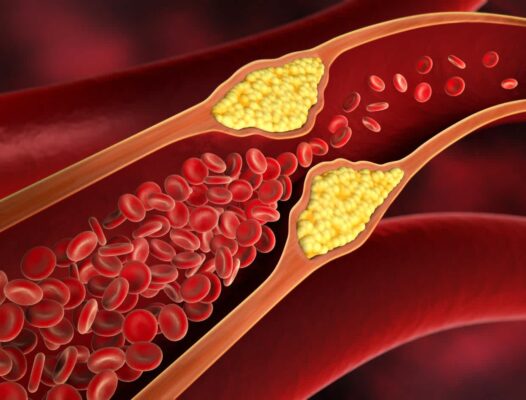Which group of individuals are at high risk of stroke?
Stroke is not only a danger for the elderly but also for younger individuals, as various risk factors can contribute to this condition. However, which group of individuals are hight risk of stroke? Bneuron will reveal it right in the article below, don’t rush through it
Groups at risk of stroke
Groups susceptible to stroke include those with high cholesterol, alcohol and tobacco users, individuals experiencing stress and leading unhealthy lifestyles, as well as those with a family history of stroke.
Hight Cholesterol
Cholesterol plays a crucial role in the formation of deposits, or plaques, within the bloodstream. These plaques can develop within the coronary arteries (supplying oxygen to the heart) and the cerebral arteries (supplying oxygen to the brain).
- Excess cholesterol can lead to the phenomenon of deposition, forming plaques within the blood vessels, resulting in blockages and causing insufficient blood supply to the brain, leading to a stroke. Cholesterol is also considered one of the risk factors for stroke
- Different types of cholesterol can have different effects on the body. LDL, known as “bad cholesterol,” is harmful to the heart and brain by promoting the development of plaques in the arteries. LDL cholesterol levels higher than 130 mg/dL are associated with a higher risk of stroke due to local blood flow reduction. However, HDL, known as “good cholesterol,” has a protective effect. HDL levels higher than 35 mg/dL help prevent strokes due to local blood flow reduction by enhancing the removal of LDL from the blood and stabilizing existing plaques. Higher HDL levels further enhance this protective ability, with the greatest benefit seen with HDL levels above 60 mg/dL, while HDL levels below 35 mg/dL are associated with a higher risk of stroke. When plaques rupture and are carried away in the blood, they can stimulate blood clotting, increasing the risk of blood vessel blockage.

Which group of individuals are at high risk of stroke?
Alcohol and tobacco use
- Studies have indicated that excessive alcohol consumption can lead to negative health effects, including adverse impacts on blood pressure and the development of neurological, cardiovascular, liver fibrosis, and liver cancer issues. Particularly, individuals who regularly consume alcohol are at a higher risk of stroke compared to those who do not drink alcohol. Alcohol consumption negatively affects the cardiovascular system, potentially causing the hearts of heavy alcohol users to enlarge disproportionately but function less efficiently (known as alcoholic cardiomyopathy), which can increase the risk of stroke
- According to studies, smoking is a risk factor for stroke and issues related to arterial atherosclerosis. Smokers have a threefold increased risk of stroke compared to non-smokers. Furthermore, smoking also increases the risk of coronary artery disease, renal artery disease, or peripheral artery disease, especially affecting the arteries in the lower limbs, and may necessitate interventions such as limb amputation if not promptly addressed.

Which group of individuals are at high risk of stroke?
Chronic stress and unhealthy lifestyles
Many people may not be aware that chronic stress and frequent stress can also lead to the risk of stroke. Studies have shown that work-related pressure, combined with unhealthy lifestyles such as staying up late, lack of sleep, and unbalanced diet, can lead to conditions such as headaches, tension, and stress. When stress becomes excessive, it can elevate blood pressure and blood sugar levels. If prolonged over time, stress can increase the risk of stroke in individuals, especially in younger individuals.

Which group of individuals are at high risk of stroke?
People with family history of stroke
People with a family history of stroke are at a higher risk of developing the condition compared to those without a family history. Having family members who have had a stroke may indicate the presence of genetic factors or shared lifestyles within the family that can increase your risk. However, having family members who have had a stroke does not necessarily mean that you will have a stroke, but it is an important factor for you and your doctor to consider when assessing your individual risk and planning prevention strategies. It is important to maintain a healthy lifestyle and implement stroke prevention measures, including controlling blood pressure, maintaining a healthy weight, exercising regularly, and limiting alcohol and tobacco use

Which group of individuals are at high risk of stroke?
Identifying high-risk groups for stroke is the first important step in prevention. Being vigilant and proactive in implementing preventive measures – from adjusting lifestyles and dietary habits to maintaining an optimistic mindset and managing stress – can significantly reduce the risk of stroke, even for those in high-risk groups.
It’s important to note that health is invaluable, and taking care of one’s health is a long-term investment for a happy and meaningful life.

Use Bneuron everyday to prevent stroke
With two glasses of Bneuron daily, packed with essential nutrients – Say goodbye to insomnia, SUPPORTING PRE-TREATMENT AND STROKE PREVENTION




